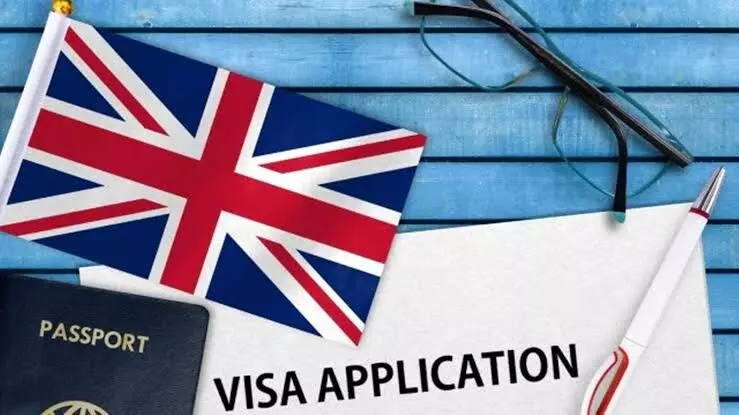UK to introduce sweeping changes to visa, immigration policies; check new rules
These reforms come in response to record-high migration figures
By Sri Lakshmi Muttevi
Representational Image.
United Kingdom: British government is set to introduce sweeping changes to its visa and immigration policies in a bid to gain greater control over who is allowed to live and work in the United Kingdom.
A key part of the new measures involves scrapping the current rule that allows many foreign workers to become eligible for permanent settlement after residing legally in the UK for five years.
In its published White Paper, the UK government outlined comprehensive proposals to reform the country's immigration system. Prime Minister Keir Starmer emphasized that the reforms are essential to ending what has been described as a “failed experiment” of mass immigration and to significantly reduce the number of individuals entering the UK through legal immigration channels.
What are the major proposed changes?
Ban on Overseas Recruitment of Care Workers: Employers in the UK will no longer be allowed to recruit care workers from overseas. Instead, care providers will be expected to hire British workers or extend the visas of care workers who are already residing in the UK.
Higher Skill Threshold for Skilled Worker Visas: Under the new system, Skilled Worker visas will only be granted for graduate-level positions. The minimum qualification level for eligible jobs will rise from RQF level 3 (equivalent to A-levels) to RQF level 6 (graduate level), reversing a change introduced in 2020.
Tougher English Language Rules for Dependents: Adult dependents of migrants will now be required to demonstrate basic English proficiency. They must pass an A1-level English test, which tests the ability to understand simple phrases and respond to basic personal questions.
Extended Residency Requirement for Settlement: Individuals will now need to live in the UK for a minimum of ten years before qualifying for permanent settlement and British citizenship, doubling the previous requirement of five years.
Reduced Post-Study Work Visa Duration: The period for which graduates can stay in the UK on a post-study work visa will be shortened from two years to 18 months. Although they can still work in any job during this time, they will now have a shorter window to meet the salary threshold required for Skilled Worker sponsorship.
Mandatory Prior Settlement for British Citizenship: Acquiring British citizenship will now require applicants to have previously attained settled status, with the new residency and settlement conditions directly impacting eligibility for citizenship.
Higher English Language Standards for Workers: The English language requirement for Skilled Worker visas and similar work-related routes will be raised from level B1 to B2 under the Common European Framework of Reference for Languages (CEFR), indicating an independent user level of proficiency.
Review of Rules for Dependant Family Members: A broader review will be conducted to reassess immigration policies related to the eligibility and admission of dependant family members of migrants.
These reforms come in response to record-high migration figures. Reports show that the UK’s net migration reached a historic high of 906,000 in the year ending June 2023. This is a significant rise from the 184,000 people who migrated to the UK during the same period in 2019, when the country was still a member of the European Union. Additionally, the number of individuals staying in the UK permanently surged by 80 percent between 2021 and 2024, while the number of dependents entering the country increased by 360 percent between 2021 and 2023.